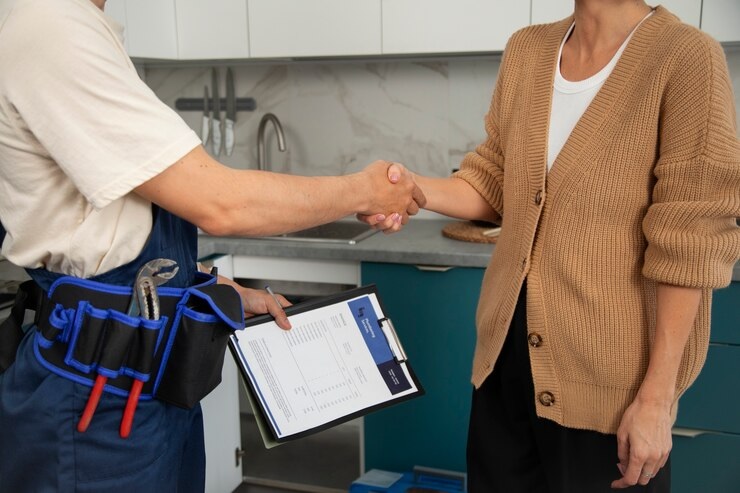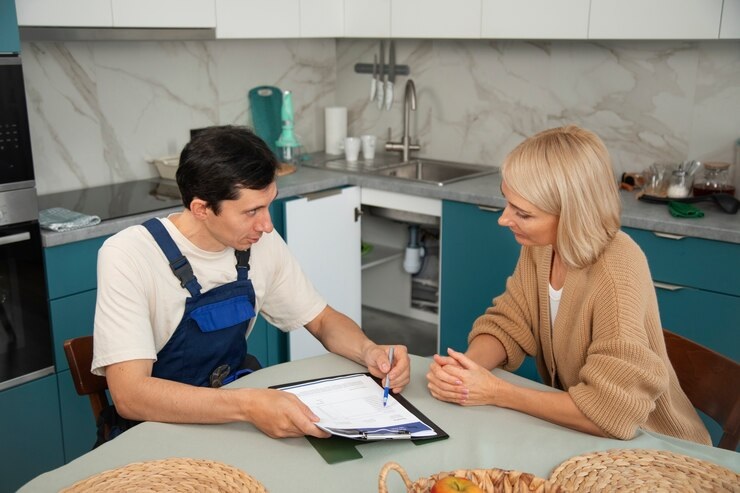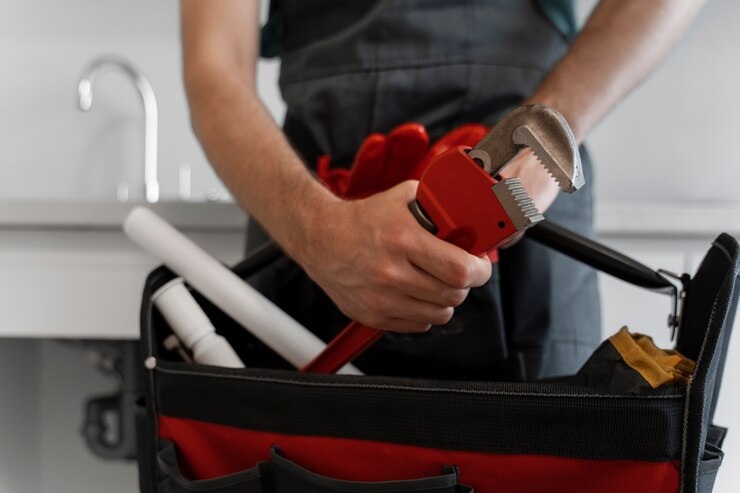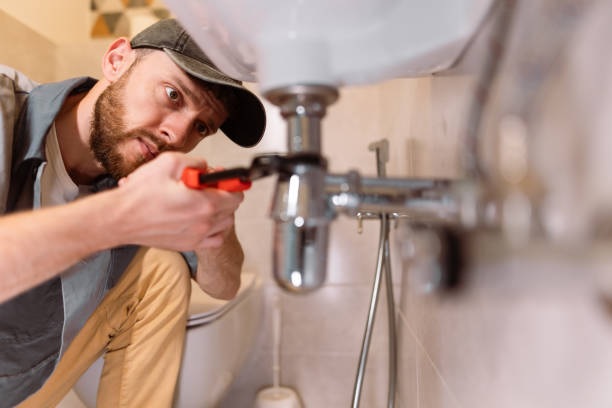Are you working for someone else but fancy being your boss? We believe that you are a qualified plumber or master plumber with extensive experience in plumbing and heating work.
So if you have ever thought of going it alone and starting your own plumbing business, there are various steps to take into account that you will need to start your new plumbing business.
But do not worry—I am here to help you start.
This guide explores everything you need to know about the industry to launch a successful small business.
Plumbing business licensing:

To run a plumbing business in London, you will need to comply with several legal requirements:
Business registration:
A license is not required to operate as a general plumber in the UK, but you should be familiar with the country’s water rules and construction codes.
Register your business with a company’s house if you plan to operate as a limited company.
Visit HMRC’s webpage to apply as a sole trader, limited company, or partnership, depending on the form of your firm and the kind of business you have.
Plumbing qualification:
ensure that you have the necessary plumbing qualifications like NVQ or city and guilds certification. These certifications demonstrate your competency and compliance with UK regulations.
Gas safe registration:
If you want to operate with any gas appliances, you must be licensed with gas safe. will you be repairing solid fuel or oil-burning appliances?
Be aware that being on the gas safe register is a legal necessity when working with gas equipment.
HETAS and OFTEC certifications are strongly encouraged. Certain jobs such as installing an unvented hot water system, need further certification.
Insurance:
Creating a limited business will also require you to register with the company’s house, which may impact the sort of plumbers insurance you seek. You can opt to join some organizations like CIPHE and CHAS.
Obtain public liability insurance to protect your business and clients in case of accidents or damage during work. You may also want to consider professional indemnity and employer liability insurance if you hire employees.
Health and safety compliance:
Ensure you follow health and safety guidelines to protect yourself and your employees. This includes conducting risk assessments and ensuring safety protocols are in place.
Market your plumbing services effectively:

Marketing plays a critical role in attracting clients and building your plumbing business. Here are a few strategies:
Create a professional website:
Build an easy-to-navigate website that highlights your services, qualifications, and customer reviews. Include a contact form and clear calls to action for potential customers.
Search Engine Optimisation:
Optimize your website for local searches like Plumber in London or Emergency Plumber London to improve visibility in search engine results.
Google My Business:
Please set up a Google My Business profile in local search results, helping customers find you more easily. Encourage happy clients to leave reviews.
Social media:
Utilise platforms like Facebook, Instagram, and LinkedIn to post updates, share tips, and engage with local customers. You can also create Google My Business and a YouTube channel. Social media is a great way to build brand awareness.
Networking:
Join local trade organizations and attend industry events to meet potential clients and network with other professionals. Word-of-mouth referrals are a powerful marketing tool.
Flyers and local ads:
Distribute flyers or place ads in the local newspapers to reach homeowners in your target area. Branded company cars and newspaper ads are effective techniques for boosting local exposure, especially for plumbing firms that only operate locally.
Logo promotion:
Wearing your logo and name on your uniform can help you be recognized by the general public and prospective customers in your area.
Organise seminar:
Organizing a joint seminar is another marketing opportunity to keep your audience engaged and interested you might want to create various tutorials concerned with DIY plumbing.
Stamping your company’s emblem and visual identity on your vehicle might help you stand out from the crowd in your neighbourhood.
Essential tools for your plumbing business:

Equip your business with essential tools to handle various plumbing tasks efficiently:
Plumbing tools:
Unless you already possess your equipment, the initial purchase of tools for a plumbing business will be the most expensive part of the process.
Some basic plumbing types of equipment include a plumber’s wrench, pliers, and a saw, however, specialized instruments like a waterfall pump, plumbing snake, and plungers may be required.
Power tools:
The plumbing businesses need power tools like drills, saws, and pipe threaders that will help speed up your work.
Diagnostic equipment:
Investing in equipment like thermal cameras, leak detectors, and drain cameras will help you locate problems efficiently.
Transport:
Plumbers often need a van or truck large enough to transport all of their equipment and supplies. It is a mobile company, and you want to be prepared with everything you need as you move to and from your client’s location.
A reliable van with plenty of storage space for your tools is essential for transporting your equipment and reaching job sites across London.
Software for scheduling and invoicing:
Use business management software to streamline scheduling, invoicing, and client communication. This will help keep your operations organized and professional.
Equipment costs will also vary considerably based on your demands and preferences.
This is often not an idea for minimizing expenses, since low-quality instruments are unreliable and degrade considerably more quickly than higher-quality equivalents.
FAQ:
Q.1 How much money do I need to start a plumbing business in London?
Ans: The costs will depend on factors like the scale of your business, but expect to spend on qualifications tools insurance, and marketing. You may need anywhere from £2,000 to £10,000 to get started.
Q.2 How do I find clients for my plumbing business?
Ans: Word-of-mouth referrals, online advertising, networking, and local marketing are great ways to find clients. Always ask for reviews from satisfied customers.
Q.3 Do I need qualifications to start a plumbing business?
Ans: while formal qualifications like NVQ level 2/3 in plumbing are essential for technical expertise, certifications such as gas safe registration are mandatory for specific services.
Q. 4 Can I run my plumbing business from home?
Ans: Yes, many plumber operates from home, especially in the early stage. You can use a dedicated space to store tools and handle administrative tasks.
Conclusion:
Starting a plumbing business in London requires a solid understanding of legal requirements, marketing strategies, and essential tools.
With the right qualifications, business plan, and commitment to providing excellent customer service, you can build a successful and reputable plumbing company in the competitive London market.
Keep up with industry trends, maintain a professional reputation, and invest in marketing to see your plumbing business grow.







